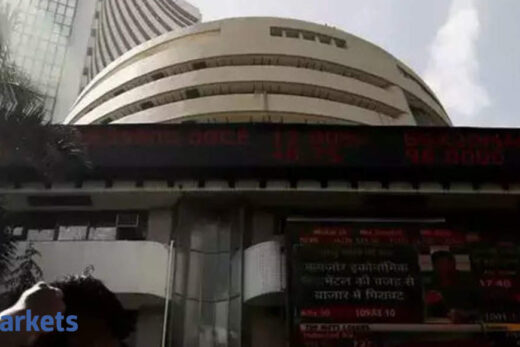Reliance is what broke the market’s back on Monday and we are seeing a continuation of that trend with another 2% knock coming in for Reliance today as well. Why?
I would say two reasons. Firstly, these are difficult times. The Covid recovery is not complete and difficult times remain for the refining as well as the retail sector and that has weighed down things dramatically for Reliance despite having one very well.
But structurally and also very importantly, the disclosure levels, essentially for gross refining margins is not there and the refining business is by far the largest business. Reliance has justified it saying that they want the market to look at it as a fully integrated operation from oil to chemicals rather than the intermediate refining. But since refining is the largest business — whether it is an intermediate business or not and to take that away from 20 years of trends and analysis — has not done any good from a disclosure level perspective.
The third thing is that the market itself got ahead. We downgraded Reliance about six months back because we really said that the market is assuming the consumer related businesses to be 30% CAGR growth sustaining over the next 10 years. It is a given that it is going to succeed and the fact of the matter is whatever one may say, at the net profit level attributable to Reliance industries, the consumer facing businesses — Jio and retail — make for only 25% of the bottomline.
So they are in a sense getting into relatively small businesses with very high expectations when the core business is oil to chemicals (O2C) and within that, you have had disclosure that it is falling sharply. That is the reason the market plummeted on Monday itself.
How do you read the explanation from the management for the change in norms of reporting the petrochem and refining segments? Were you satisfied with what the management had to say?
Rightfully from the management’s perspective, they are looking out over the horizon significantly and what they had strategically decided and rightfully so is that they want to focus more on the chemicals and petrochemicals — the value added part of the business. This could be a growing business and also to that extent, the carbon footprint will reduce and they have very significantly set a very bold target on that and by 2035, they are looking to have zero carbon emission.
They are attempting to steer the market more towards what matters in the longer term. So I would say from the long-term perspective they are correct but it is significantly down the road. Rather than suddenly asking people to stop looking at the biggest business and telling them to look at the integrate business is a folly. They have to demonstrate that they are getting into value added businesses rather than asking people to stop looking at the intermediate business.
But does Reliance merit the 7% fall that we have seen — 5% on Monday and another 2% today? Do you think time has come to buy into the stock yet or would you wait for lower levels?
We downgraded and weighted our recommendations effectively because while Reliance has underperformed the market very sharply in the last six months, it not only led the increase just prior to that till about June-July of 2020 but for the last four years it has been an excellent performer. And to that extent, the bulk of the stock increase has been a valuation increase. So, on a very rough reckoning the stock has gone from roughly about 10 times four years back to a little less than 30 PER and that is really because the market has swung from being an extreme disbeliever in Jio about four years back. At that time, the market was giving a 30-50% discount to the invested capital. Now if you got a 50% discount to the invested capital you are not only saying that equity value is zero but 25% of the debt is going to be written off! The reason I am telling you this is because it is really the investors’ mindset which has changed dramatically. The fundamentals have improved but the investors have gone ahead of themselves. They have bumped up the valuations three-fold and really the ask for growth is extremely high. We would be looking for more realistic levels in terms of valuations.
What is the outlook on Reliance Industries when it comes to earnings growth? What are you pencilling in and what is the outlook on the stock in the long haul?
Despite recent earnings pressures at the EBITDA level, they have done reasonably well because of almost zero tax. I think in the sort to medium term, they should have fairly healthy earnings growth. It would be somewhere in the teens and perhaps even higher teens. While there is potential for some risk, but at the same time, they have commissioned huge capacities and an operational leverage is kicking in in the form of a $6.5 billion petcoke gasifier. They have just started commissioning a $6 billion upstream business which may add a billion dollars per year or more in terms of EBITDA. Of course, the retail side of the business and also their brick and mortar business, which after 13-14 years is now at an operational leverage phase.
So earnings growth in the medium term is going to be reasonably good, especially in the context of the market. If I remember correctly, in the past 5-7 years, Reliance’s earnings growth has grown at twice the pace of the market earnings growth and so that has not really been an issue. The issue is really the growth expectations. The retail and Jio business has gone to 30% CAGR ask and at the cost of repetition, the retail and the digital services business are only 29% of net profit at Reliance. I am not talking about EBITDA. In EBITDA, you capture 100% of these businesses in part of the consolidated EBITDA but Reliance only owns 67% of the Jio Platforms and 85% of retail. So, you have to adjust for that at the net profit levels.
It is actually the smaller businesses where the market is expecting huge growth and that is how the stock is priced. This goes back to text book theory that valuations tend to drive up stocks more than earnings.



